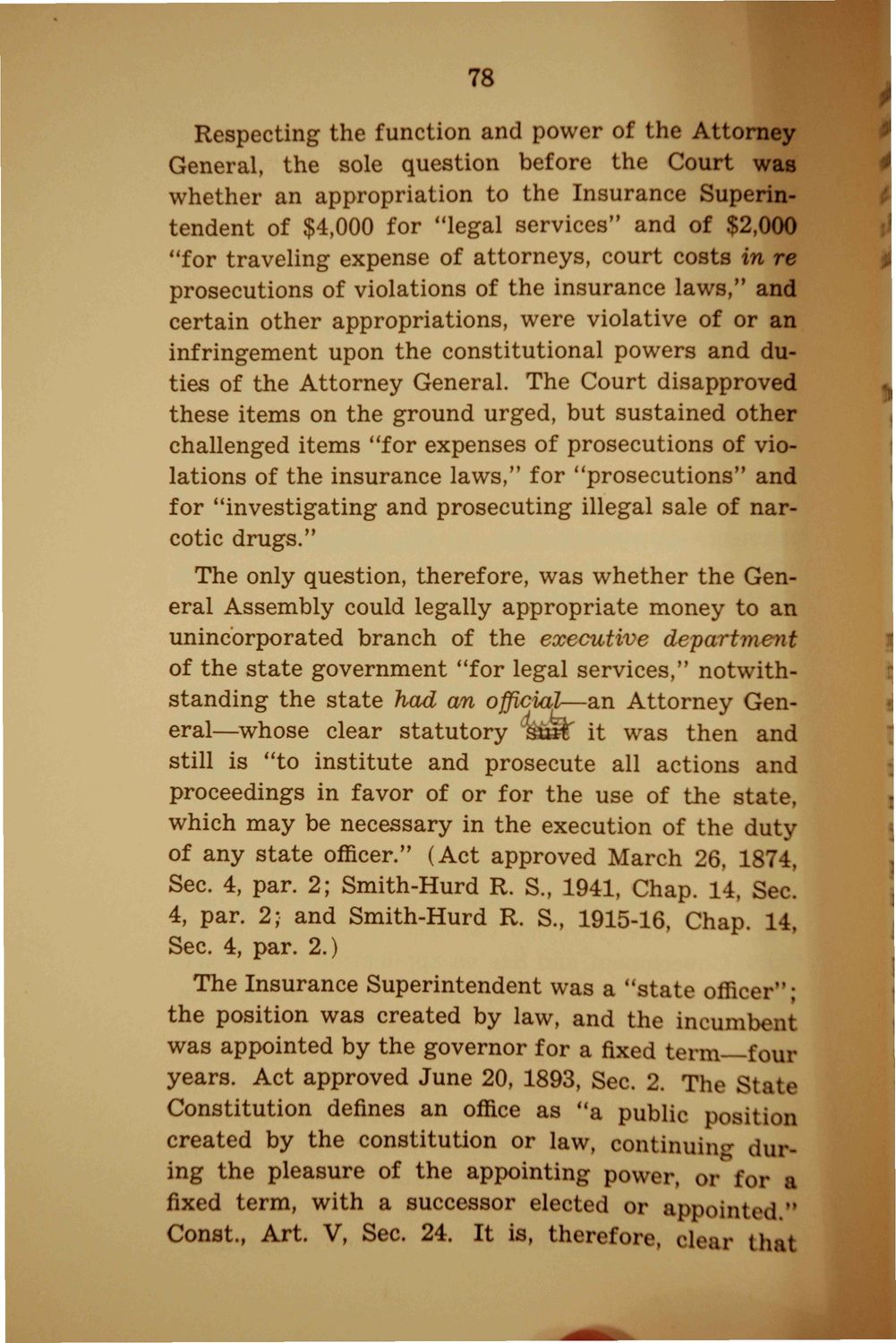| |
| |
Caption: Booklet - UI Charter of Freedom (1942)
This is a reduced-resolution page image for fast online browsing.

EXTRACTED TEXT FROM PAGE:
78 Respecting the function and power of the Attorney General the sole question before the Court was whether an appropriation to the Insurance Superintendent of $4,000 for "legal services" and of $2,000 "for traveling expense of attorneys, court costs in re prosecutions of violations of the insurance laws," and certain other appropriations, were violative of or an infringement upon the constitutional powers and duties of the Attorney General. The Court disapproved these items on the ground urged, but sustained other challenged items "for expenses of prosecutions of violations of the insurance laws," for "prosecutions" and for "investigating and prosecuting illegal sale of narcotic drugs. The only question, therefore, was whether the General Assembly could legally appropriate money to an unincorporated branch of the executive department of the state government "for legal services," notwithstanding the state had an official—an Attorney General—whose clear statutory "salf it was then and still is "to institute and prosecute all actions and proceedings in favor of or for the use of the state, which may be necessary in the execution of the duty of any state officer." (Act approved March 26. 1874. Sec. 4, par. 2; Smith-Hurd R. S., 1941. Chap. 14, Sec 4, par. 2; and Smith-Hurd R. S., 1915-16, Chap. 14. Sec. 4, par. 2.) > > The Insurance Superintendent was a "state officer the position was created by law, and the incumbent appointed four years. Act approved June 20, 1893, Sec. 2. The State Constitution defines an office as "a public j tsition created by the constitution or law, continuing dining the pleasure of the appointing power, or tot a fixed term, with a successor elected or appointed Const., Art. V, Sec. 24. It is, therefore, clear that
| |